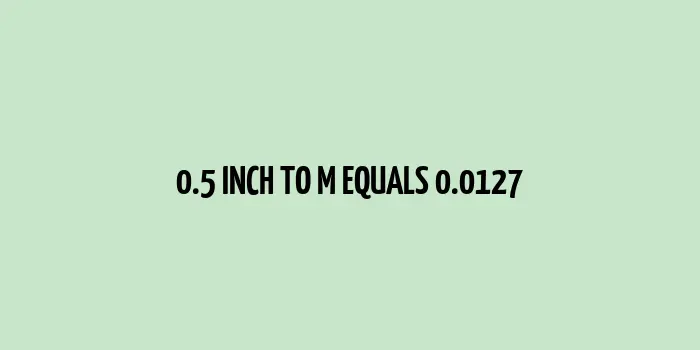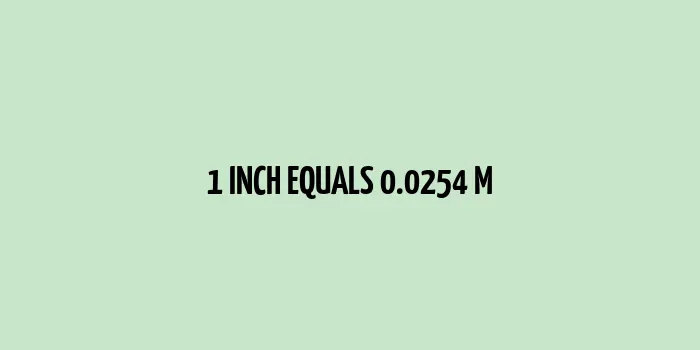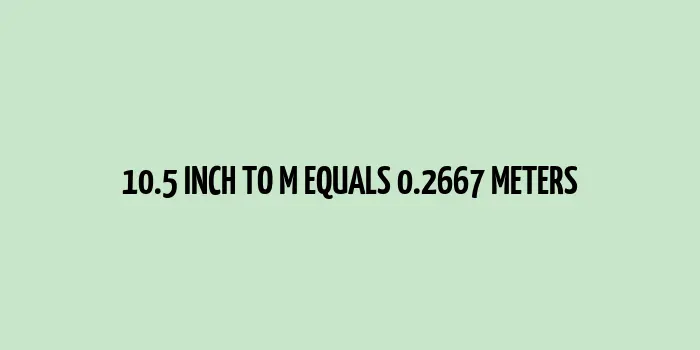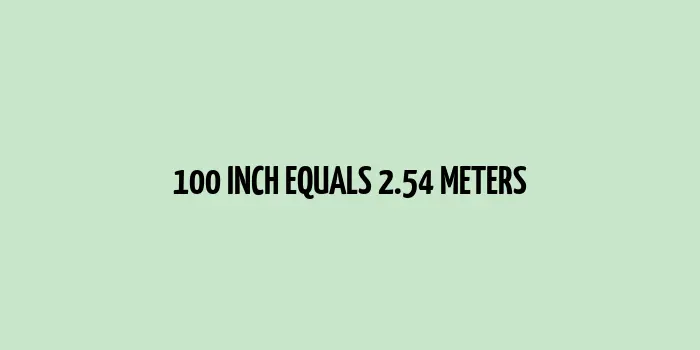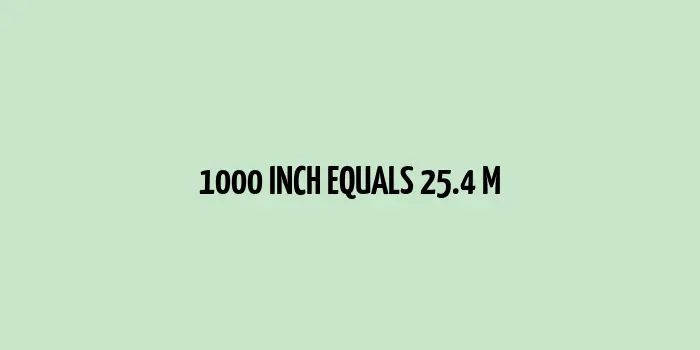24 inch to m (Inches to Meters)
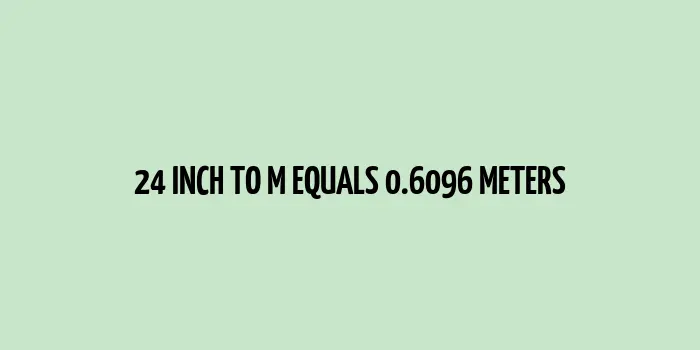
Let us understand the process of converting 24 inch to m
24 inches is equal to 0.6096 meters. Converting inches to meters can be crucial for various applications like interior design, construction, and scientific measurements. Understanding such conversions can simplify tasks and enhance accuracy.
24 inches, which is equivalent to 2 feet, might seem simple, but when you convert it into meters, it brings precision. One inch equals 0.0254 meters, so to determine 24 inches in meters, you multiply 24 by 0.0254, resulting in 0.6096 meters.
When planning home renovations, for instance, accurate measurements are vital. Many people overlook the importance of converting units accurately, leading to potential missteps. Measurements in meters provide a universally accepted standard, ensuring that all professionals involved can collaborate seamlessly, regardless of the measurement system they are accustomed to.
Importance of Unit Conversion
Understanding the conversion from inches to meters is essential not only for practical reasons but also for improving the efficiency and accuracy of various tasks. If you work globally, the metric system, which includes meters, is more commonly used than the imperial system (inches and feet) in many parts of the world. For example, an engineer in the United States collaborating with a counterpart in Europe would benefit greatly from understanding and using meters.
Practical Examples and Applications
Most rulers, yardsticks, and other measuring tools in countries using the metric system are marked in meters and centimeters. For instance, an architectural blueprint may use meters for layout dimensions to align with international standards. If the blueprint specifies a particular wall should be 24 inches, providing the equivalent measurement in meters (0.6096 meters) removes ambiguity and reduces the possibility of errors.
Statistics and Facts
According to a global study, 85% of countries use the metric system exclusively, making it the standard for global trade, science, and many educational fields. Another statistic reveals that 95% of engineers prefer working with metric units due to their simplicity and ease of conversion.
External Reference
For a detailed understanding of the metric system and its applications in various fields, you might find this guide to metric conversions helpful.
FAQ
How do I convert inches to meters?
To convert inches to meters, multiply the number of inches by 0.0254. For example, 24 inches multiplied by 0.0254 equals 0.6096 meters.
Why is it important to use meters instead of inches?
Using meters is important because it aligns with the international measurement standards, ensuring accuracy in scientific, engineering, and architectural tasks.
Are there tools for converting inches to meters?
Yes, there are various online calculators and conversion tools available that can quickly convert inches to meters.
Can I measure small objects in meters or should I use inches?
For small objects, inches might be more practical. However, converting those measurements into meters can be beneficial for consistency in documentation and global communication.
Understanding how to convert 24 inches to meters, using accurate methods and tools, enhances communication across different fields and ensures precision in projects and tasks.
